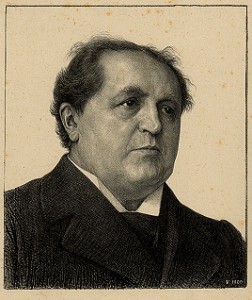


For most of my life, much of what I’ve learned about the world came from watching movies. This was especially true in 1983, when I was in junior high. That was the year I learned about astronauts (The Right Stuff), thermonuclear war (War Games), and ewoks (Return of the Jedi). I also learned about financial crimes—specifically insider trading— from the Eddie Murphy/Dan edy, Trading Places.
If you’ve forgotten the plot, here’s a brief summary by Gary Gensler, the former Chairperson of the Commodity Futures Trading Commission. In testimony before Congress, Gensler said,
In the movie “Trading Places,” starring Eddie Murphy, the Duke brothers intended to profit from trades in frozen concentrated orange juice futures contracts using an illicitly obtained and not yet public Department of Agriculture orange crop report. Characters played by Eddie Murphy and Dan Aykroyd intercept the misappropriated report and trade on it to profit and ruin the Duke brothers. In real life, using such misappropriated government information actually is not illegal under our statute. To protect our markets, we have mended what we call the “Eddie Murphy” rule to ban insider trading using nonpublic information misappropriated from a government source.
Turns out I wasn’t wasting my time on a edy—I was learning about a modities regulation.
Yet aside from the “Eddie Murphy” rule, I don’t actually know that much about insider trading. I also hadn’t given itmuch thought since watching Gordon Gekko get rich off inside information inWall Street (1987). But this week I listened to an intriguing Planet Money podcast about the topic. The show’s hosts, David Kestenbaum and Jacob Goldstein, ask a question that I hadn’t considered before: What makes insider trading wrong?
Let’s first define what we mean by the term. As the Securities and Exchange Commission explains,
Illegal insider trading refers generally to buying or selling a security, in breach of a fiduciary duty or other relationship of trust and confidence, while in possession of material, nonpublic information about the security. Insider trading violations may also include “tipping” such information, securities trading by the person “tipped,” and securities trading by those who misappropriate such information.
The assumption it that insider trading is not a victimless crime. “Somebody was definitely harmed,” says Kestenbaum. “It’s just really hard to know who.”
When someone profits by buying stock on an insider tip, says Goldstein, they bought stock someone else could have owned:
That somebody – that unknowable somebody – would have profited when the stock went up. That unknowable somebody, that is the victim. That is the person who got robbed.
I’m not sure I agree. That “unknowable somebody” seems far too vague to be identified as a true victim. So who, if anyone is harmed? And if no one is harmed, what makes it immoral? Or is it even immoral at all?
Some would argue, as Kestenbaum says, that the reason insider trading is illegal is that itamounts to stealing information from pany. If it is indeed akin to theft, then it would clearly be immoral. But is it theft? Sometimes or always? And if it’s not theft, is there still a basis for it to be considered immoral? Those are the questions I want to open up for discussion in ments section.
Let me add one clarification: I’m more interested in the question of whether, when viewed from the standpoint of Christian ethics, insider trading is immoral. I’m less interested in the questions of legality. As my libertarian friends often remind me, not everything that is immoral should be illegal. Similarly, not everything that is illegal is inherently immoral.
So what do you think? What makes insider trading wrong?









